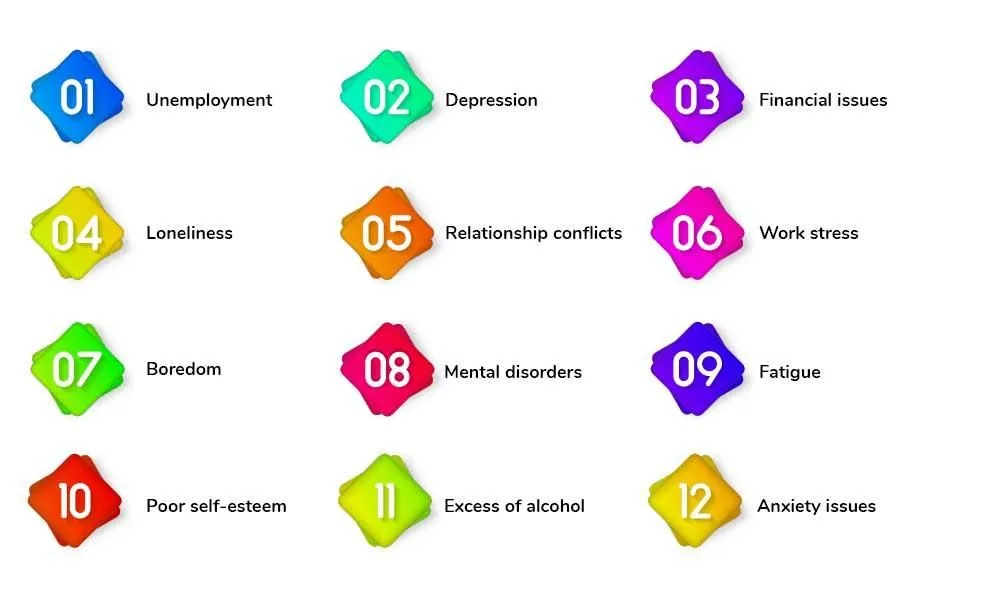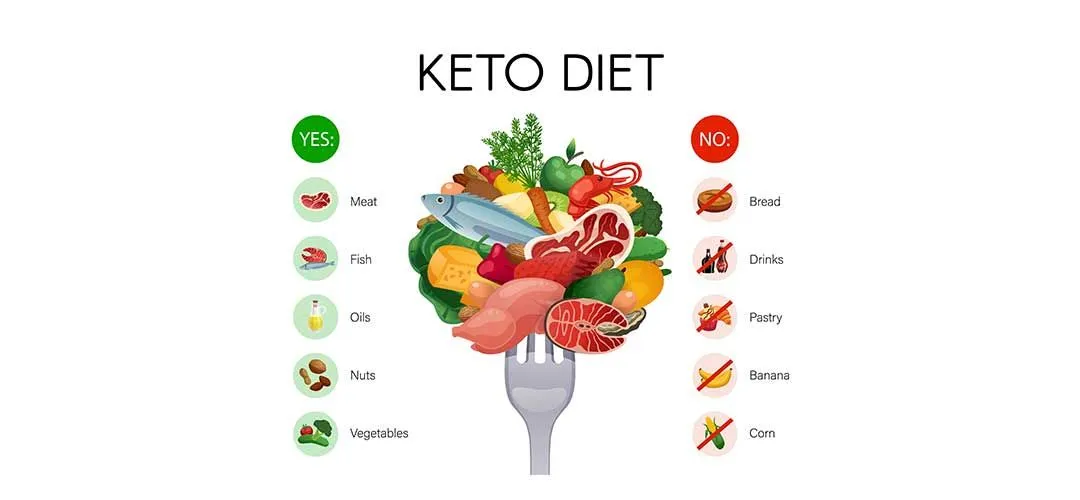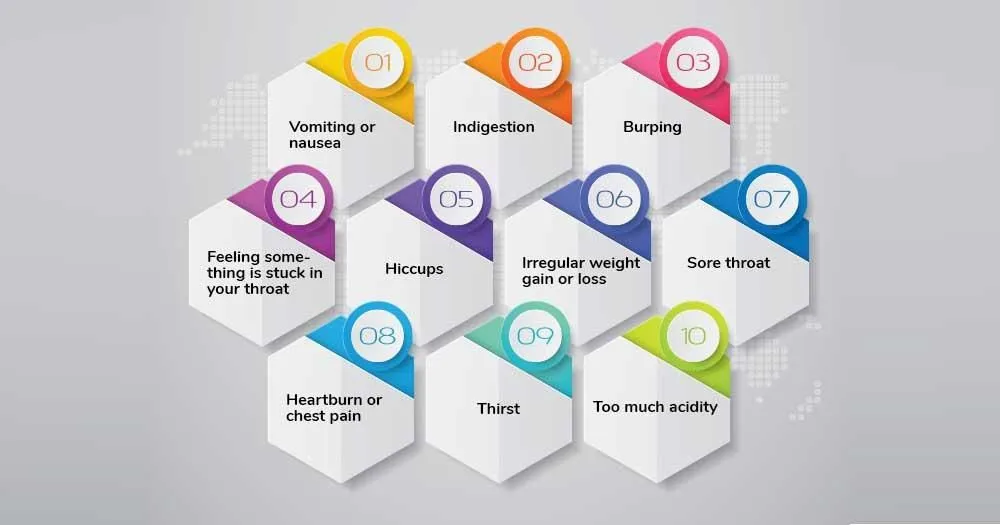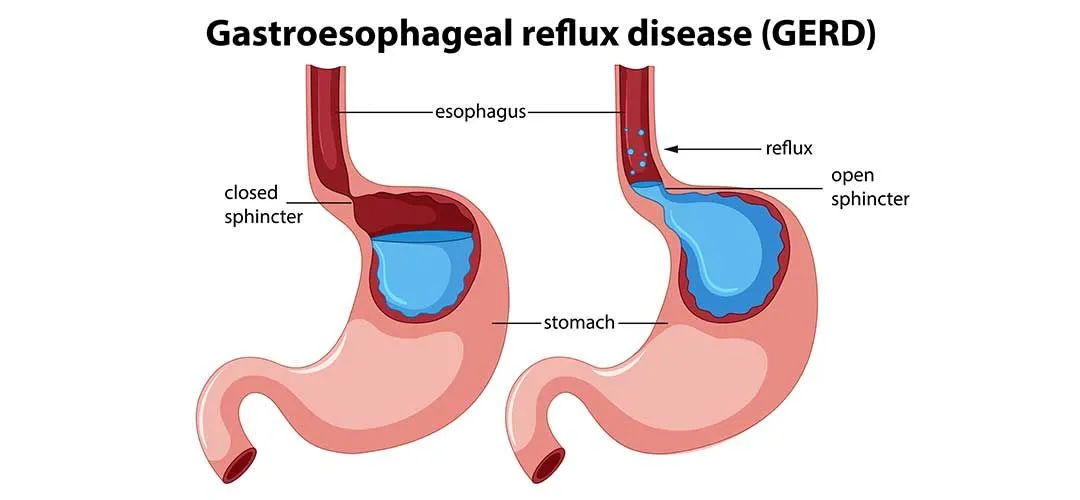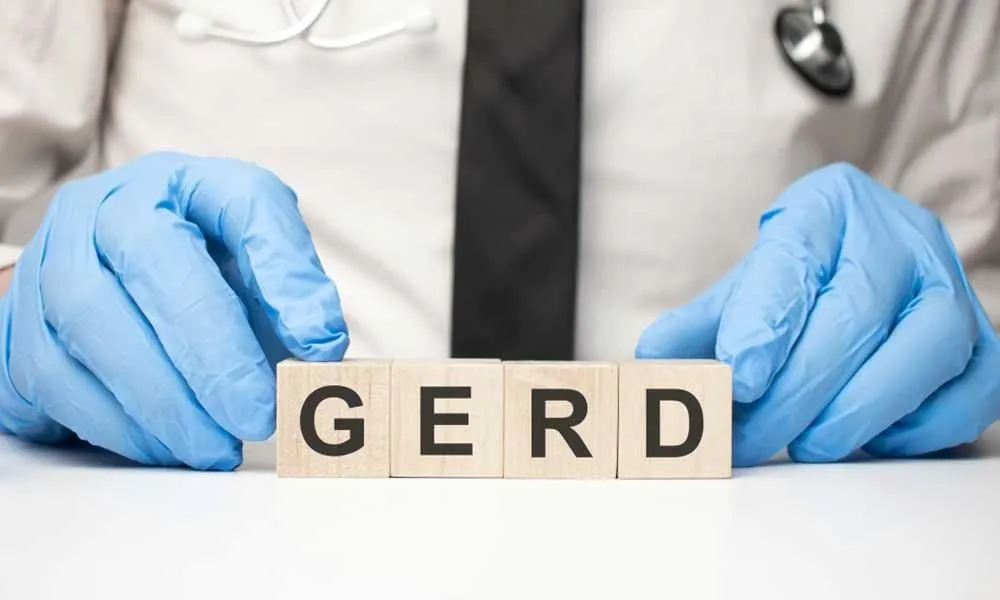Binge Eating Disorder (also called BED or Emotional Eating Disorder) refers to the habit of eating foods at ill-advised times, even when one is not hungry. The person suffering from this issue develops a habit of eating compulsively and the feeling is heightened when he is stressed or bored. Cravings for certain types of sweet or salty foods can also make matters worse.
1. These uncontrolled eating habits cause an overload on one person’s digestive system, especially the liver, spleen, and intestines.
2. These organs need more water to dissolve the food and in case it is not there, the salts present in the food start mixing with scarce water content in the bloodstream, thus leading to an imbalance of gastric acids in the stomach.
3. The imbalance goes all the way up to your esophagus and even tongue, and cramps you up. This process is called acid reflux and could leave you struggling with abdominal discomfort, bloating, or heartburn.
Most BED offenders take refuge in eating and drinking excessively to cope with their negative emotions like stress, anger, fear, boredom, sadness, and loneliness. These feelings are all vectorial representations of a low and defeated self-worth, and you would almost always find obese and depressed people topping the list of emotional eaters.
Taking refuge in eating may sound like a brilliant idea momentarily because it relieves you of your negative outlook but it does come with a hefty price tag. This applies to men and women of all age groups.
We tend to turn towards food for comfort at our weakest point. When we’re facing a difficult problem or are just looking to keep ourselves occupied, we consciously or subconsciously, try to binge on unhealthy foods and drinks. This habit becomes worse when we do not exercise any self-control. This only sinks us deeper in guilt and depression and affects our health (and self-esteem) adversely.
The major factors which trigger negative emotions and result in emotional eating are:
1. Unemployment
2. Depression
3. Financial issues
4. Loneliness
5. Relationship conflicts
6. Work stress
7. Boredom
8. Mental disorders
9. Fatigue
10. Poor self-esteem
11. Excess of alcohol
12. Anxiety issues
Tip: Fight The Enemies Of Weight Loss - Fatigue, Stress, And Overeating!
Here are some common effects of Binge Eating Disorder or BED:
1. Poor metabolism
2. Obesity
3. Arthritis
4. Gallbladder stones
5. Diabetes
6. Thyroid issues
7. Poor self-esteem
8. Cardiovascular issues
9. High cholesterol
10. High blood pressure
11. Cancer
12. Mental disorders
13. Mouth or peptic ulcers
14. Loss of sexual desires
15. Weight gain or weight loss
16. Eating at improper times
17. Stomach pain
These are some of the most common effects of an Emotional or Binge Eating Disorder (BED). If you can identify yourself with them, we recommend you get in touch with your healthcare service provider to discuss the issue.
Tip: You can check your BMI for free online by clicking this link.
The major connection between food and mood is that at the time if negative pressures can make you happy instantly, you might then engage in gluttony even without enjoying the taste. This also works the other way around. If you’re worried about an upcoming event or stewing over a conflict, you may turn to indulgent food instead of dealing with the situation.
Also read: Best Tips To Crush Cravings And Beat Anxiety
Though unrealized, emotional eating makes a person happy only for a very small duration. Once that period is off, they go back to bear the burden of guilt about their weight-loss goal. Getting engaged in emotional eating is an unending cycle of Negativity>> Overeating>> Workout regime goes off track>> Triggers negativity>> Overeating.
Identifying the factors that cause you to eat compulsively is the first step to control the occurrence. Usually by the time you have identified a pattern, eating in response to emotions or certain situations has already become a habit. You would need to outsmart your thought process to be fit and this usually is never easy.
Choosing healthier alternatives to junk foods is the second step. When you start to reach for food in response to an eating trigger, try one of the following activities. You can also check this free resource to get yourself back on track if you have already consumed some heavy calories indulgently earlier today.
Here are some smart ways that you can use to beat the vicious cycle of emotional eating:
Nothing is worse than thinking of yourself meagerly. If you think you would be overwhelmed by a person or a situation, eating or drinking more won’t help you solve it.
Instead of snacking when you’re not truly hungry, distract yourself by engaging in activities like walking, jogging, reading, and doing household chores, etc. It is important to pursue a hobby or anything that makes you happy.
All junk foods have their lower-calorie alternatives. You should go for low-fat and low-calorie snacks like fresh fruits or vegetables with low-fat dip or popcorn. Eating fruits and salads is another smart way to beat gluttony.
Lean on your family and friends or consider joining a support group to fight your emotional eating habits more effectively. Sometimes, people do not talk to their friends due to social anxiety, and in this case, consulting a mental therapist is recommended.
Before eating anything, ask yourself if you are hungry or if you are just tempted to eat something. Not being convinced means you should give your craving a pass. You may also have some water before you decide any further.
Nothing is more important than believing in yourself, no matter how old your habits are. Psychology says that we all can form new habits or reshape older ones in a month and you can always try it on yourself.
If stress is the reason for your untimely and unhealthy food cravings, you should consult a health and wellness expert. We also recommend that you try to live one moment at a time. Doing Yoga or Zen meditation could help too!
If your emotions are out of control and you’re facing mood swings, you should stay away from eating or drinking uncontrollably. You should realign your focus by going to a gym or watching TV. Listening to a spiritual guru would also help.
You can download a free calorie tracker on your smartphone to track your calorie intake and stay strict to avoid going beyond your maximum calorie limits. You can use the inputs to maintain a journal so your healthcare expert could refer to it.
Most overweight people have a high-fat diet. This clogs their heart and accumulates bad cholesterol in the arteries. You can never feel good about yourself if you think you look flabby- and eating excessively would only make it worse.
This is paramount. A mental therapist and a professional nutritionist can read through the patterns of your personality and thus help you identify the underlying causes. You connect with such professionals through a live audio or video conferencing session using your smartphone or laptop.
Known as Gastroesophageal Reflux Disease (GERD), the disease of Acid Reflux is caused by the digestive acids and juices reaching the inner lining of the food pipe. It may also occur when the liver is inflamed and the bile secreted by it goes upwards to the food pipe.
Occasionally, it may not even be a concern but getting acidity more than twice a week could be due to GERD. You should not ignore it if it becomes worse when you eat or drink at irregular times and when you lie down on your chest.
Certain foods can trigger acid reflux. Experts know that excess weight, even if it’s a relatively small amount, can result in or worsen the symptoms of Gastroesophageal Reflux Disease (GERD). Emotional and compulsive eaters are at a far greater risk of acid reflux than other people due to their indulgent habits and love of eating.
Here are some common symptoms of GERD:
1. Vomiting or nausea
2. Indigestion
3. Burping
4. Feeling something is stuck in your throat
5. Hiccups
6. Irregular weight gain or loss
7. Sore throat
8. Heartburn or chest pain
9. Thirst
10. Too much acidity
If you’re overweight, losing just 10% of your body weight can significantly improve your chances of avoiding GERD symptoms and the risk of many chronic illnesses. If you’re at your ideal weight, it is not advisable to lose weight to treat heartburn. Seeking help from a doctor or changing your diet to make it more GERD-friendly by minimizing fat and oil and dairy may help.
Suggested read: Here’s why you are bloated all the time!
If you have a few extra pounds to lose, you should try losing them healthily and effectively. This will help you get rid of heartburn and acidity, and will also reduce the risk of heart disease, cancer, and diabetes. The route runs through a disciplined diet and restrictive eating practices and something like a Ketogenic or Mediterranean diet would help.
Here are some expert weight loss tips to reduce acid reflux and contain GERD:
We recommend eliminating fried food and other high-fat meals. Reducing the fat in your diet will increase the pressure in your lower esophageal sphincter and help the stomach empty faster, thus reducing your chances of acid reflux. Starting your day with a cup of green tea would also help.
Having a large meal may put excess pressure on your stomach and cause acid reflux. You should have 4 to 6 small meals a day to optimize your metabolism rates and reduce your weight. You can also try meditating or working out to maximize this advantage.
Having an oily and fatty meal in the evening or night can lead to weight gain and acid reflux. You should thus have your last meal about 3 to 4 hours before bedtime and then go for a simple walk for about 15-20 minutes in the meantime. This would reduce the issue of indigestion.
Following healthy eating, practices are important to cure GERD. One should stay away from consuming cola, soda, and caffeine every day- and it is also just as important to cut down on smoking habits. Also stay away from tomatoes, mint, high-fat foods, citrus fruits, and chocolate for the best results.
Here are some easy to follow home remedies to cure acid reflux at home:
1. Drink cold water
2. Don’t eat onions or garlic
3. Drink coconut water
4. Eat more protein
5. Have chamomile tea
6. Eat licorice or marshmallow
7. Eat more salads
8. Have some ginger
9. Have oatmeal for breakfast
Emotional or compulsive eating may not be a wrong habit in its entirety, but its consequences do often create a hindrance to better health and fitness. There is a limit to which your body can process your foods and convert them to energy. The more you exert pressure on this natural system, the worse it shall become for you- and acid reflux is just one side effect of it.
We recommend consulting with a professional nutritionist and a mental therapist today to have a better assessment of your current lifestyle. They would help you identify the triggers that lead you down this path of self-harm and indulgence, and they would also pep you up so you may rise higher from them.
